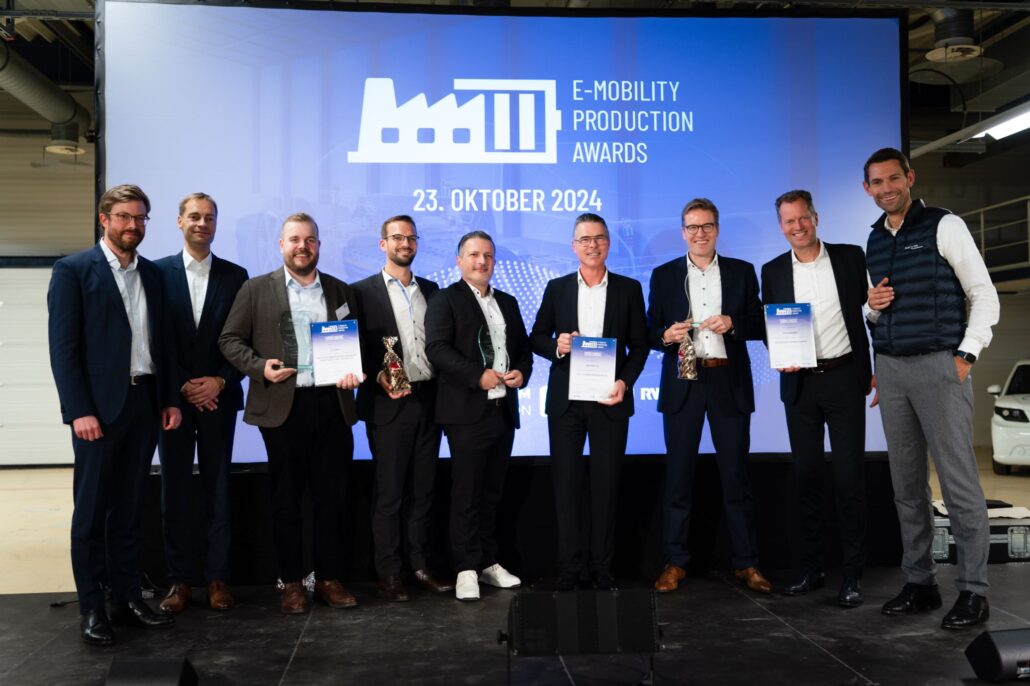The 12th Electric Vehicle Production Days (EPT) in Aachen, Germany, brought together several hundreds of industry leaders, innovators, and researchers to explore the latest advancements in the manufacturing of electric mobility components. Organized by the Chair of Production Engineering of E-Mobility Components (PEM) of RWTH Aachen University as well as the Fraunhofer FFB, supported by Battery-News as an official media partner, the event has become a key platform for discussing the future of electric vehicle manufacturing. The focus of this yearʼs event was on enhancing efficiency, innovation, and the scaling of new technologies for mass production.
Need for more flexible production lines
Throughout the conference, experts stressed the need for collaboration between research institutions and industry to stay competitive in the global market. Workshops and discussions highlighted challenges in scaling up production processes for electric motors, battery systems, and their respective components, emphasizing the critical need for more flexible, efficient production lines.

Transfer from research to industry
According to PEM Director Professor Achim Kampker, improving the efficiency of electric vehicle component manufacturing does not only reduce costs but also accelerate the global adoption of electric mobility. Meanwhile, the Fraunhofer Research Institution for Battery Cell Production (FFB) presented their role in scaling innovations from research to industrial production, showcasing how they are helping to bridge the gap between laboratory-scale experiments and real-world application. The FFB is regarded as a model for ensuring that production in Germany can compete on a global scale, both in terms of cost and quality.
Presenting three E-Mobility Production Awards
As an EPT highlight, for the second time, three different E-Mobility Production Awards were presented, recognizing key players for their contributions to advancing electric mobility manufacture. This year’s awards honored achievements in the two key categories of Best E-Motor Production and Best Battery System Production, with a third award for Best Process Innovation in the Production of Battery Cells and Systems decided by the audience.
- The award for Best E-Motor Production went to BMW Group for its plant in Dingolfing, Germany. The jury highlighted the plant’s ability to efficiently produce a wide range of electric motors, achieving the highest production volume per square meter among all candidates. The BMW plant stood out for its use of in-house developed technology and innovative production processes, driven by a high degree of automation and strategic patents.
- The award for Best Battery System Production was presented to Volkswagen Group Components in Braunschweig, Germany. The jury praised Volkswagen’s ability to rapidly scale its battery production, despite significant cost pressures and a complex manufacturing environment. Volkswagen’s innovative approach to integrating production capabilities and retraining staff allowed the company to overcome these challenges and deliver top-quality battery systems for a wide range of vehicle models, according to the jury.
- The third award for Best Process Innovation in the Production of Battery Cells and Systems was voted on by the EPT audience and awarded to Swedish company Excillum for its MetalJet technology, which is said to be the world’s brightest microfocus X-ray source, enabling more precise and faster scanning of battery materials which is crucial for quality control in battery production. The innovation holds the potential to significantly enhance production efficiency and ensure higher quality standards in the manufacturing process.
Scalability and cost efficiency to be essential
As a consensus of the 12th EPT, the future of electric mobility production is decided by scalability, flexibility, and cost efficiency. The event also highlighted the importance of continued investment in research and development. The 12th EPT demonstrated that innovation in the manufacturing of electric mobility components is not just about meeting current demand, but about preparing for the future. With stronger collaboration, greater flexibility in manufacturing, and ongoing advancements in production processes, the industry is said to be well-positioned to drive the global transition to electric mobility.



